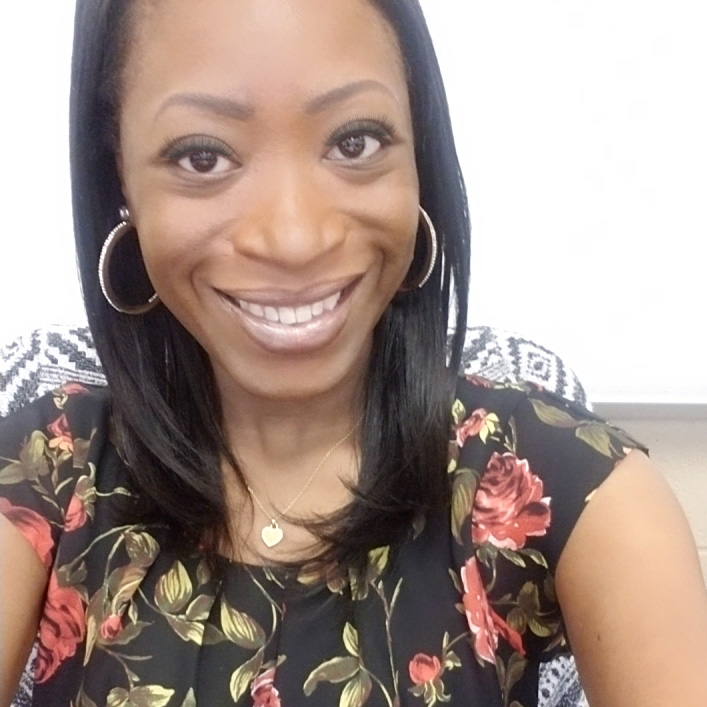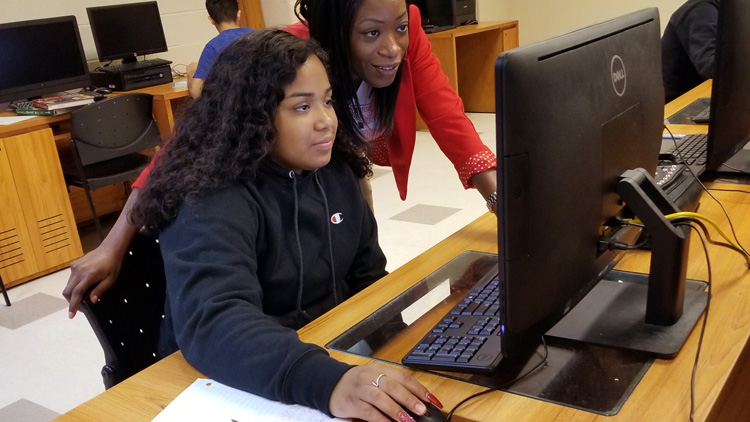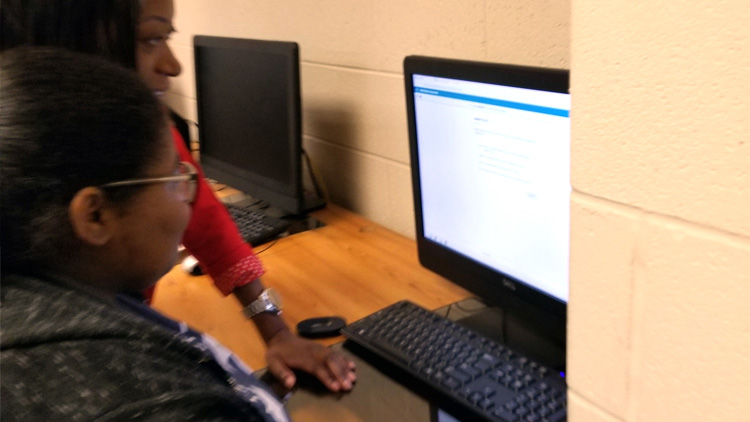Innovative Educator



In Dawanna Jones's personal finance class at Memorial High School in Port Arthur, Texas, hands-on experiences take priority over a by-the-book approach. Her half-semester, elective class, called Principles of Banking and Financial Services, is centered around a project-based curriculum designed to capture students' interest in topics like credit scores, income taxes and auto loans.
Dawanna's career as a personal finance teacher began 11 years ago, driven by a motivation to get students on a path to financial success. "I wanted to teach financial education because of experiences I had been through. Students need to learn financial literacy early so they can succeed and avoid some big financial pitfalls," she says. That first year, she based her curriculum on a money management book she got from another teacher. The seven chapters covered basics like who works in a bank and how to write a check, but she knew her students needed a more engaging and in-depth introduction to personal finance. That's when she decided to center her class around one big project, based on real life.
Unlike more traditional programs, Dawanna's Principles of Banking and Financial Services class equips students not only with the ability to write a check but to apply for college financial aid, interview for jobs, understand deductions on their pay stubs and get the best mortgage terms possible. Her 10th–12th graders select a career of interest to simulate, research the education required to pursue that career, and navigate major financial milestones and challenges using their chosen job as a basis.

Dawanna walks one of her students through an online lesson.
During the project, students also calculate the cost of health and dental insurance, shop for auto and home loans and file income taxes. It's an eye-opening experience for her students, most of whom didn't have basic banking or credit knowledge before entering the class. They leave Dawanna's class not only with an understanding of topics like why a credit score matters and what net income means, but also with a clearer picture of whether their career paths of interest may or may not support their lifestyle goals.
Towards the end of the semester, Dawanna has students create a budget reflecting all of the research and choices they've made. "I do the budget last because I want the students to see how much it is going to cost them to be able to afford the kind of life that they want to have. Many times, they realize that the career they picked may not be able to support their desired lifestyle," says Jones. When it comes time to balance their budgets, students' spending often exceeds their income — it's an "aha moment" for many. "If you're spending more than you make, you'll have to go back and make some adjustments. Maybe you sell your house, get a less expensive phone or car, or don't go out with friends as much," she advises.
What's most rewarding for Dawanna is equipping the roughly 300 students she helps each year gain skills that will serve them in many aspects of life. She loves seeing the pride with which they file their own taxes or help their parents get the best rate on an auto loan. She sees responsible use of credit as one of the most essential concepts she teaches. She says, "I think the lesson that I teach that sticks with students is making sure that they get good debt and keep their bad debt low or none."

A student asks Dawanna for help with an online activity.
In addition to her Principles of Banking and Financial Services class, Jones teaches a class geared toward aspiring entrepreneurs. The goal of the course, called Principles of Business, is to equip students with the basic skills they need to start their own business. She has them decide what type of business they'd like to launch, write a business plan, find a location, research the market, survey the competition, and calculate the cost of materials and equipment needed to launch their venture. Like her Principles of Banking and Financial Services class, the elective course steps away from status-quo learning and allows students to gain skills through first-hand experience.
In both classes, dynamic resources like videos, online tools, educational games and guest speakers from the local community help engage students. "I really like to make it real for them, relatable to them."
Dawanna has provided thousands of students with the skills to manage their finances wisely for more than a decade, and the feedback she's received has been overwhelmingly positive. Still, she strives to make her program better every year. As part of the culminating project in both courses, she asks students to give her feedback and suggestions for the program so she can improve it year by year.
This dedication to delivering top-notch financial education falls in line with her belief that money management skills should be taught early and thoughtfully. "When it comes to teaching financial literacy, the earlier, the better. The sooner kids start learning these things, the more easily they become ingrained."
Practical Money Skills would like to commend Dawanna Jones on her ongoing efforts and commitment to financial literacy at Memorial High School.
Share
